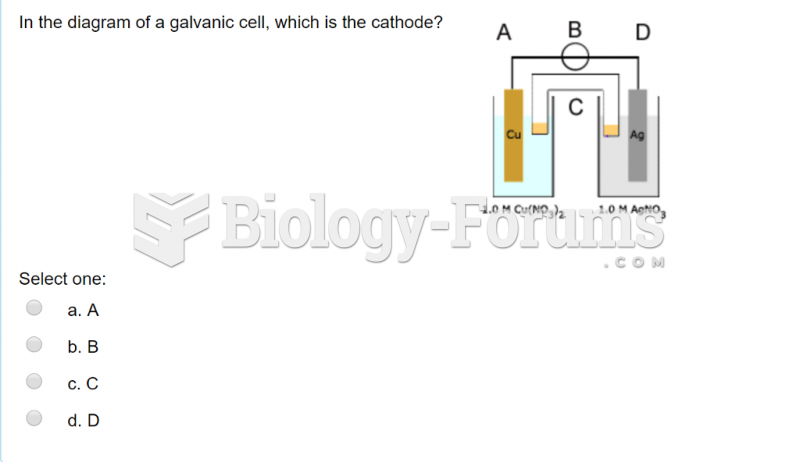This topic contains a solution. Click here to go to the answer
|
|
|
Did you know?
Hyperthyroidism leads to an increased rate of metabolism and affects about 1% of women but only 0.1% of men. For most people, this increased metabolic rate causes the thyroid gland to become enlarged (known as a goiter).
Did you know?
Illicit drug use costs the United States approximately $181 billion every year.
Did you know?
There are more sensory neurons in the tongue than in any other part of the body.
Did you know?
Aspirin may benefit 11 different cancers, including those of the colon, pancreas, lungs, prostate, breasts, and leukemia.
Did you know?
Cytomegalovirus affects nearly the same amount of newborns every year as Down syndrome.







